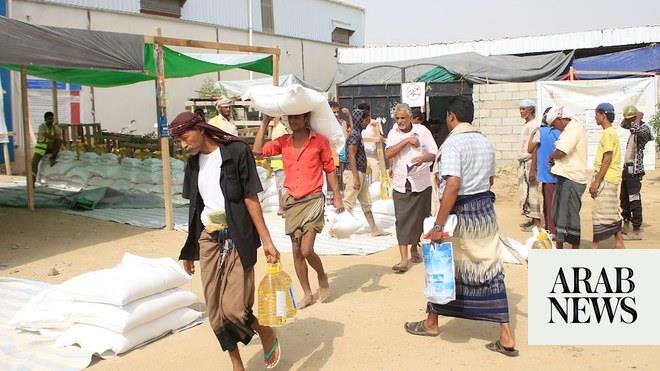
The United Nations garnered on Tuesday $2.6 billion for humanitarian relief in Yemen, with Saudi Arabia and the United Arab Emirates topping the donors’ list.
The Kingdom and UAE pledged $500 million each, while Kuwait pledged $250 million at a UN donors conference in Geneva.
Saudi Ambassador to Yemen Mohammed bin Saeed Al-Jaber stressed that the Kingdom had sought for decades to support Yemen’s economy, noting that it has been the greatest donor to its neighbor from 2006 until 2014. He estimated that Saudi aid has made up 43 percent of international support to the war-torn country.
UN chief Antonio Guterres stated that the Yemeni people need $4.2 billion in aid for 2019.
Opening the conference, he lamented "an overwhelming humanitarian catastrophe" in Yemen, where some 24 million people, or four-fifths of Yemens total population, require aid and protection.
"Twenty million people cannot reliably feed themselves or their families," he said. "Almost 10 million are just one step away from famine."
Jaber stressed that the support Saudi Arabia presented to Yemen was not limited to food and humanitarian relief, but it has launched a number of projects and initiatives that are being implemented by the Saudi Program for the Development and Reconstruction of Yemen.
The support is directed to the health, education, energy, transportation, water, agriculture and fishing sectors.
Moreover, he highlighted Riyadh’s oil derivatives grant to Yemen’s power plants, which helped restore power to several provinces, benefiting 18 million people.
Yemeni Prime Minister Moeen Abdelmalek said that the nature of his country’s humanitarian crisis means that his government alone cannot shoulder its burden, forcing it to turn to the international community and donor countries.
He accused the Iran-backed Houthi militias of looting food aid and selling them in the markets.
The UN had recently acknowledged these violations.
The Houthi practices are exacerbating the humanitarian crisis, leaving vast numbers of the population in poverty and in need of aid, continued the premier, while pointing to the militias’ barring of access to the Red Sea silos that store enough grain to feed nearly 4 million people.









